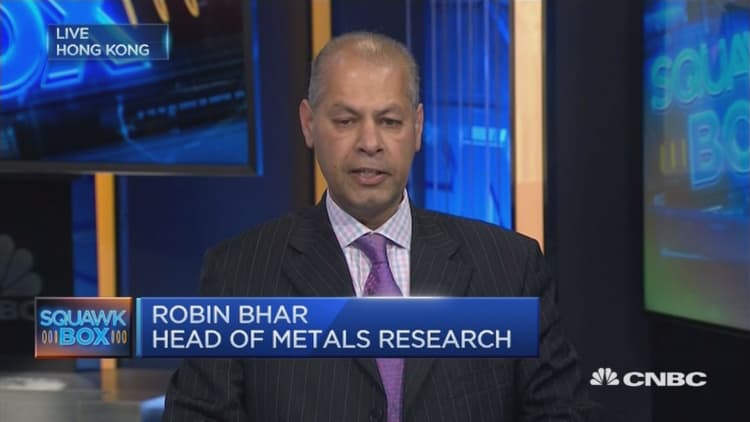
Commodity prices usually rally as the U.S. Federal Reserve heads into a hiking cycle, but it might be different this time, Goldman Sachs said in a note Monday.
Historically, "commodities perform the best when the Fed is raising rates," Goldman said. "This makes intuitive sense because the reason why the Fed raises interest rates is that the economy displays signs of overheating. Strong aggregate demand and rising wage and price inflation are precisely the time when commodities perform the best."
It added that rising interest rates in China also tend to coincide with better commodities performance, noting the mainland's "outsized role" in demand.
That's a driver of Goldman's overweight call on commodities, with expectations for solid performance over the coming year as the Fed raises rates and the labor market runs at full employment.
But Goldman pointed to three risks that could derail its view.
Firstly, it noted that technology changes and U.S. shale oil production could have "a profound impact" on commodity returns.
"While conventional oil production takes time to ramp up, the response time for shale is much shorter," it said. "This has increased the oil supply elasticity, which may contribute to lower commodities returns relative to historical experience even as demand strengthens."
Secondly, Goldman said the China tailwind may be waning.

As an example, it cited China's demand for refined copper, which rose to 10.2 million tons in 2015 from 660,000 tons in 1990, totalling 90 percent of the total global growth in copper demand.
"Going forward, the growth in the Chinese demand for industrial metals is likely to be much more muted, also contributing to lower commodities returns relative to historical experience," Goldman said.
Finally, Goldman also pointed to a risk from the Fed's hiking cycle itself, noting that the current pace has been much slower compared with previous cycles amid a gradual U.S. and global economic recovery.
"While our U.S. economists expect three hikes this year and another four hikes in 2018, the fact that this hiking cycle has been different from previous hiking cycles imply that commodities returns may also differ from their historical performance," it said.


